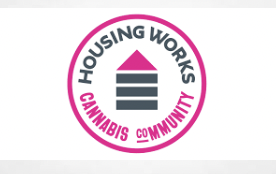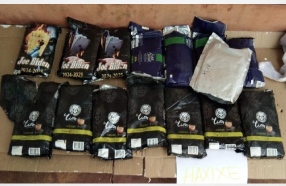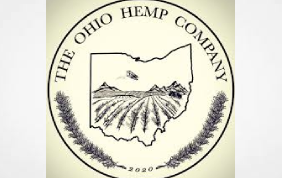DAYTON, Ohio — TJ Richardson and Justin Helt were some of the first producers in Ohio to grow hemp after Gov. Mike DeWine signed Senate Bill 57 in 2019, legalizing hemp production in Ohio.
The pair started growing 11,000 cannabinoid hemp plants, CBD plants, on three acres of land in 2020. Eventually, they transitioned to growing grain and fiber hemp plants, following the fast-growing market for fiber hemp.
Now, nearly four years after their first plants went in the ground, Richardson and Helt’s Ohio Hemp Company landed its first contract with Michigan-based Heartland Industries to produce a bio-plastic made with hemp fiber.
“My grandpa always says that hemp is the most exciting new thing in agriculture since soybeans in the 50s,” Helt said. “That gives you a little perspective on how often something like this comes along. We see a huge trajectory path for this crop to grow in the state.”
A new partnership
Richardson and Helt knew from the start that growing industrial hemp provided a long list of possible end-use products. To explore these new outlets, they started connecting with hemp-using companies close to Ohio.
One of these companies was Heartland Industries based in Detroit, Michigan. Heartland Industries was founded in 2020 as a hemp processing facility.
In the beginning, there was a steep learning curve for growing and processing hemp. Heartland Industries and farmers had to learn how to plant the crop all over again.
“It had been illegal for 80 years, a lot of the knowledge and planting equipment has been either lost or transitioned to corn, soybean and wheat,” said Tim Almond, chairman and co-founder of Heartland Industries. “Farmers didn’t know what technology would work. So we had to understand how to plant the crop all over again.”
In 2022, Heartland Industries partnered with Ravago, a Belgian plastic production company, to create bioplastics using industrial hemp. Ravago and Heartland produce bio-plastic products for the automotive industry.
Similar to the way regular plastic products are made, industrial hemp is made into hemp nurdles — small pellets — and then mixed with plastic nurdles to produce a hemp-based bioplastic. The bioplastic is made up of 30% hemp fiber and 70% plastic.
“Everybody wants to have a product that’s better for the environment, but it’s hard to do it if it compromises the cost and it compromises performance,” said Almond. “We found a happy balance with the plastic manufacturing world where we can use this ingredient at 30% in the recipe, and we could see cost savings, we can see weight reduction, we can see performance maintaining the same, but most importantly we can see the reduction in carbon footprint.”
Heartland Industries partners with farmers in the Midwest to source hemp. The company does the first level of processing the plant before sending it on to Ravago to produce the final product.
Ohio Hemp Co. expands
Richardson and Helt’s pitch to produce industrial hemp for bioplastics couldn’t have come at a better time. Heartland initially partnered with farmers in Michigan but recently began expanding into Illinois, Indiana and, now, Ohio.
The contract between Ohio Hemp Co. and Heartland Industries started in March and is a non-binding, year-to-year product purchase contract for Ohio Hemp Co. to supply Heartland Industries with hemp fiber.
Read more
Ohio Hemp Company signs contract to grow hemp for bioplastics
















